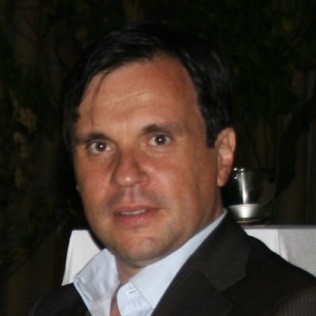Advances in Synthetic Biology: Artificial Cells and Cell-Free Systems
A special issue of Cells (ISSN 2073-4409).
Deadline for manuscript submissions: closed (30 April 2019) | Viewed by 11404
Special Issue Editors
Interests: synthetic enzymology; mechanistic enzymology; synthetic biology; therapeutics; environmental sustainability
Interests: giant lipid vesicles; light transduction; compartimentalized chemical reacting systems; stochastic effects
Special Issues, Collections and Topics in MDPI journals
Special Issue Information
Dear Colleagues,
The construction of synthetic cells of minimal complexity, i.e., protocells, is today one of the most attractive and challenging goals in synthetic biology. Two different approaches can be adopted: Starting from living beings and reducing their complexity (top down approach) or assembling inanimate compounds by combining liposome technologies and microfluidics with components of cell-free systems (bottom up approach).
The aim of this Special Issue is to illustrate the state-of-the-art of bottom up synthetic cell research by presenting current trends and field-leading work that could lead to qualitative advancement in the coming years.
Distillations of trends and work include: novel multi-compartment vesicles; the achieving of new functions via the reconstitution of trans-membrane proteins; the shift from the isolated cell to the cell population/community perspective; the exploitation of molecular signalling; and the integration of mathematical models.
The final aim is the construction of protocells that can exhibit biologically reliable and predictable behaviour, mimicking some cellular functionalities or implementing new functions that can be activated in response to an external input. In this sense, a protocell can be viewed as a soft bio-robot capable of performing computational tasks in order to solve problems that emerge in its external environment. Future applications include bio-remediation, fuel production, smart drug delivery, disease diagnosis, in situ (bio)synthesis of drugs, and collective interaction for distributed computation.
Dr. Wen Shan Yew
Dr. Fabio Mavelli
Guest Editors
Manuscript Submission Information
Manuscripts should be submitted online at www.mdpi.com by registering and logging in to this website. Once you are registered, click here to go to the submission form. Manuscripts can be submitted until the deadline. All submissions that pass pre-check are peer-reviewed. Accepted papers will be published continuously in the journal (as soon as accepted) and will be listed together on the special issue website. Research articles, review articles as well as short communications are invited. For planned papers, a title and short abstract (about 100 words) can be sent to the Editorial Office for announcement on this website.
Submitted manuscripts should not have been published previously, nor be under consideration for publication elsewhere (except conference proceedings papers). All manuscripts are thoroughly refereed through a single-blind peer-review process. A guide for authors and other relevant information for submission of manuscripts is available on the Instructions for Authors page. Cells is an international peer-reviewed open access semimonthly journal published by MDPI.
Please visit the Instructions for Authors page before submitting a manuscript. The Article Processing Charge (APC) for publication in this open access journal is 2700 CHF (Swiss Francs). Submitted papers should be well formatted and use good English. Authors may use MDPI's English editing service prior to publication or during author revisions.
Keywords
- synthetic cells
- chemical signaling
- trans-membrane protein reconstitution
- microfluidics
- giant lipid vesicles







